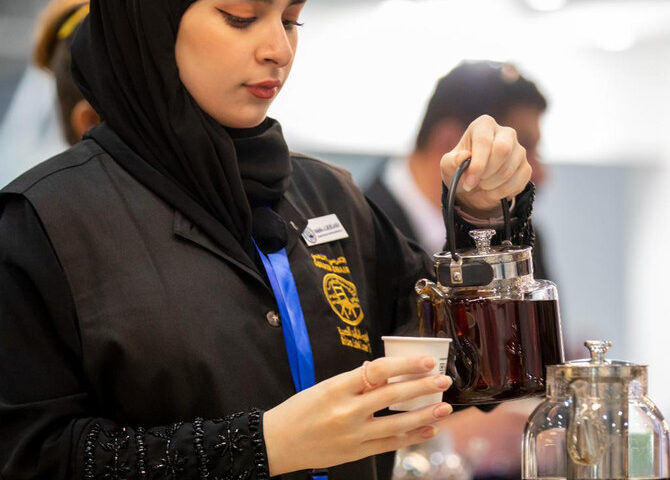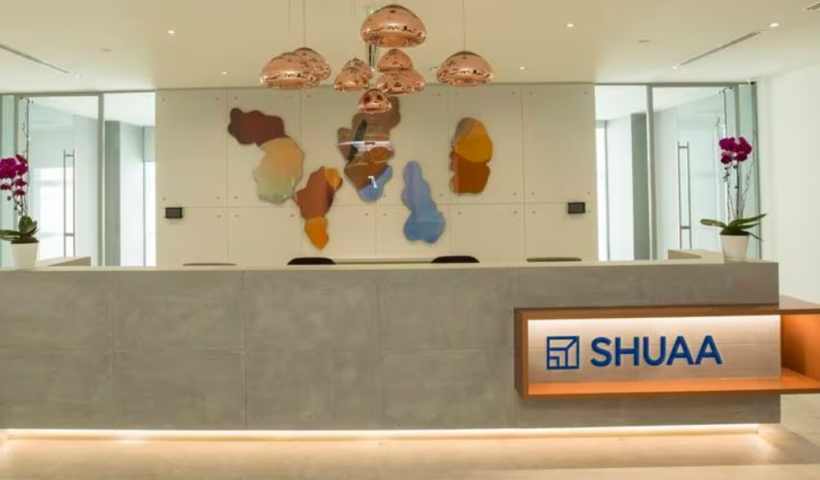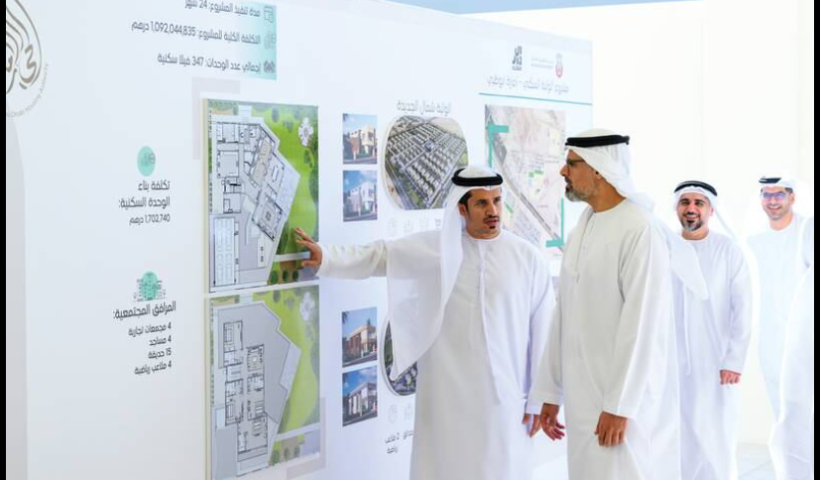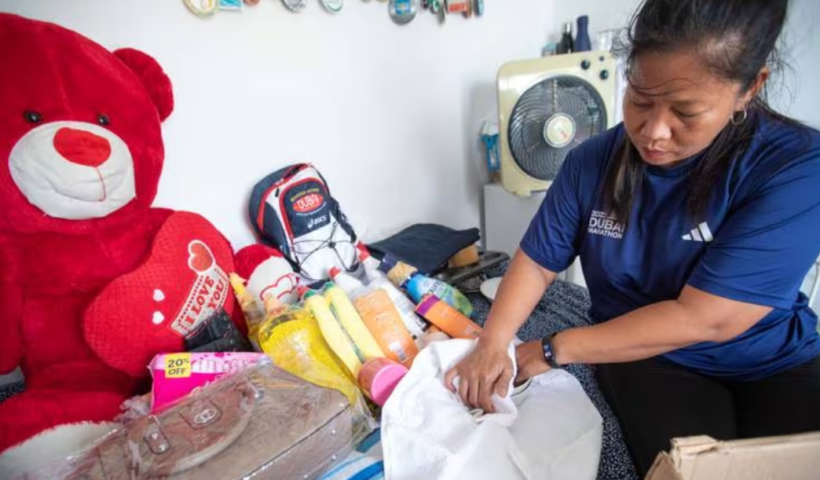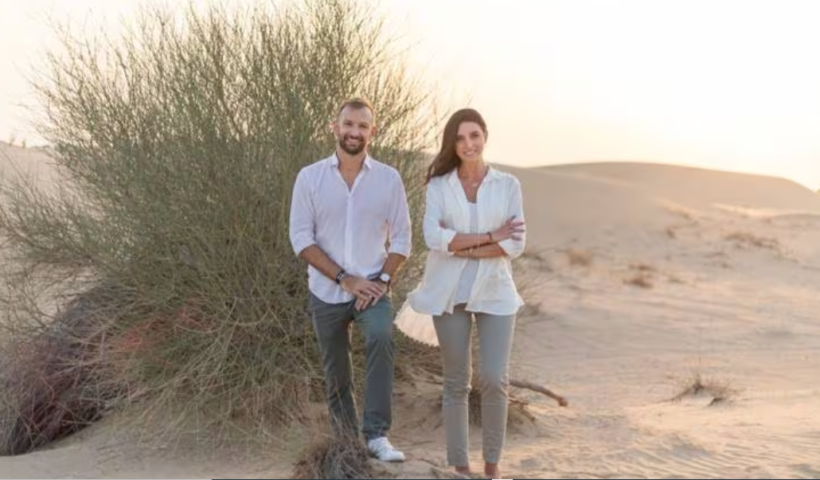At the Riyadh Exhibition and Convention Center in Riyadh, the international culinary exhibition InFlavour Expo will get underway on Sunday.
A well-known international event, InFlavour unites business, science, technology, art, hospitality, and cuisine. Renowned Michelin-starred chefs, business titans, global consumer brand ambassadors, and international dignitaries are drawn to it.
From October 29 to October 31, the event will be held in collaboration with the Saudi Ministry of Environment, Water, and Agriculture. Traditional Saudi treats like dates, coffee, and maqshush will be served to guests.
Among the 200 F&B pioneers on the schedule are celebrity chefs Marco Pierre White and Manal Al-Alem, as well as business titans from Big Idea Drinks, Ossiano, and Kitopi, the world’s top multibrand eatery and tech unicorn.
Marco Pierre White, widely regarded as the “godfather of modern cooking,” is an advocate for the expansion and development of the food and beverage sector. Headlining the inaugural InFlavour event is something he views as a “honor and privilege.”
White remarked, “It is extremely exciting to be involved in the launch of Saudi Arabia’s first food and beverage event. Not only does InFlavour promise to significantly accelerate the Kingdom’s burgeoning food sector, but it also clearly shows that the government is serious about improving food security and inspiring industry innovation across local and international businesses.”
“I see InFlavour bringing that to the table; Middle Eastern cuisine is all about coming together, sharing, socializing, and indulging.” Amazing things can happen when you combine technology, local insights, international knowledge, and cuisine. Expectations should be extremely high, considering the roster of knowledgeable speakers I have already seen.
The Culinary Arts Commission of Saudi Arabia is also taking part in the exhibition. The commission will present its cutting-edge approach to the culinary arts industry during the event, which includes the launch of Kawn’s business incubator, a program meant to help startups and small enterprises get off the ground and compete by providing workshops and mentorship. Participants will be incubated for a duration of four to six months.
The commission will also present the Abde’a cultural license platform, which aims to encourage the private sector to participate more in cultural events and initiatives.
The commission’s involvement in the show is a testament to its dedication to empowering Saudi chefs, arranging meetings with esteemed culinary professionals, and presenting the rich, traditional recipes of Saudi Arabian cuisine.
Considering the current state of the global food system, this event represents a significant shift in Saudi Arabia’s strategy for tackling pressing issues in the F&B sector. Saudi Arabia is recognizing the importance of improving the efficiency of its food systems in order to attain food security and sustainability, and is implementing measures to that end.
More than 200 speakers, 600 exhibitors, 40,000 attendees, and more than 200 foreign investors and venture capitalists that focus on the food and hospitality industry will all be present at the expo.
Food and water security, agritech, sustainability, logistics, food tech and investment, plant-based food, concept restaurants, culinary excellence, food waste, retail, and e-commerce are among the topics that will be covered at the InFlavour conference.
Saleh Bindakhil, a spokesman for the Ministry of Environment, Water, and Agriculture, stated that Saudi Arabia leads the region in the food and beverage market and is rapidly moving toward its goal of becoming the world’s largest market for food trade and hospitality.
Additionally, he claimed that InFlavour would accelerate the development of new standards for product sourcing options to advance the hospitality and consumer sectors while also increasing Saudi Arabia’s food imports and exports.
Bindakhil claims that the food industry in Saudi Arabia is expanding rapidly as a result of large investments made in hotels and resorts, a surge in entrepreneurs in the food and beverage sector, and a readiness to advance and accept new technologies. “All of these elements will fundamentally alter Saudi Arabia’s food service industry. The focal point and impetus for this convergence across the industry is InFlavour.
The food service industry in the Kingdom is expected to grow by 6.5% annually over the next five years, according to a conservative forecast by the Ministry of Investment. However, independent market intelligence provider Fortune Business Insights predicts that the industry will grow by 11.5% annually and reach a valuation of $30.47 billion by 2029.

